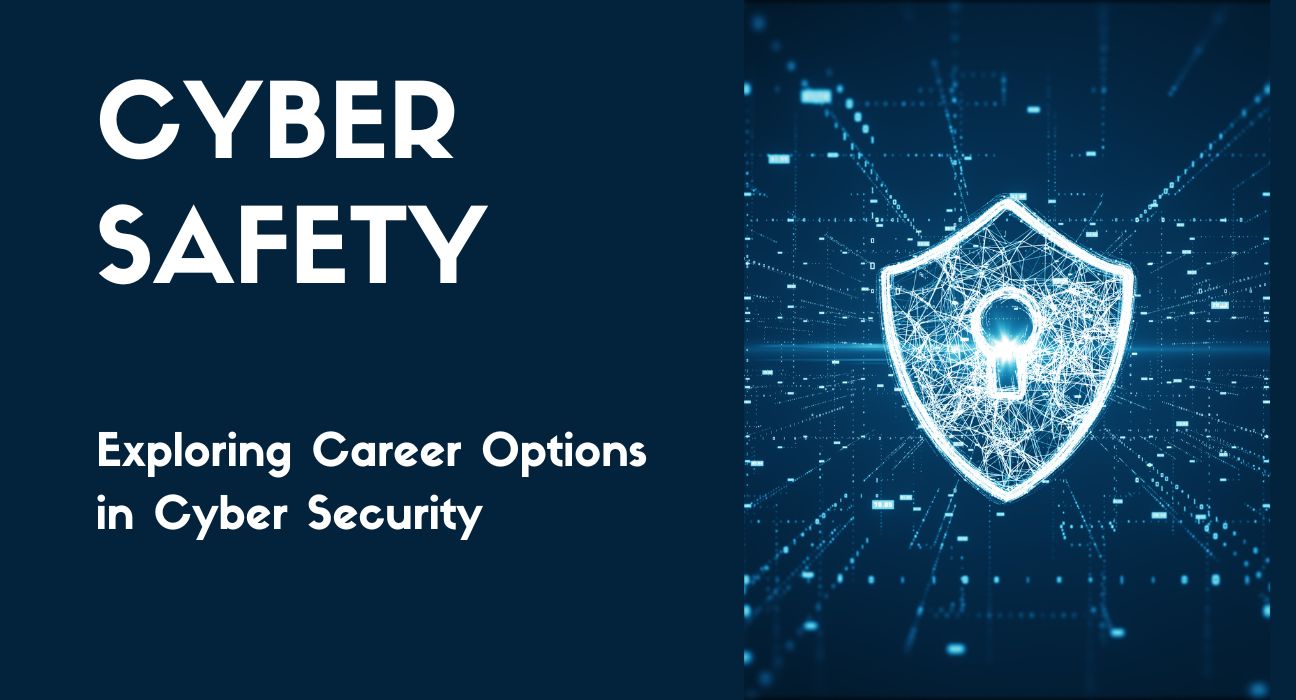An Introduction to Careers in Cyber Security
The digital age has ushered in a significant demand for cybersecurity professionals. With organisations heavily reliant on digital infrastructure, the imperative to safeguard sensitive data and systems has intensified. This has opened up many cyber security job opportunities, catering to various skill sets and career stages. For those embarking on their professional journey or contemplating a sector switch, the cyber security landscape offers a myriad of roles, each with its unique challenges and rewards. Whether it’s defending against cyber threats, identifying system vulnerabilities, or consulting on best practices, the field is diverse and dynamic, making it an attractive option for many.
The Role of an Information Security Analyst
An Information Security Analyst is crucial in protecting an organisation’s data and systems from potential cyber threats. Their duties involve continuous monitoring of networks for security breaches, investigating incidents when they occur, and developing strategies to prevent future attacks. They also perform regular security audits, update security policies, and ensure compliance with relevant regulations. The role requires a blend of technical skills and analytical thinking, as well as the ability to stay calm under pressure and communicate effectively with both technical and non-technical stakeholders. Typically, a bachelor’s degree in computer science, information technology, or a related field is required. Additionally, certifications such as CompTIA Security+, Certified Information Systems Security Professional (CISSP), and Certified Information Security Manager (CISM) are highly valued. Proficiency in various security tools and technologies, such as firewalls, encryption, and intrusion detection systems, is essential. Information Security Analysts must also stay updated with the latest cyber threats and security trends, often participating in ongoing training and professional development. This role not only demands technical expertise but also an understanding of organisational processes and the ability to implement effective security measures within those frameworks. Their work is fundamental in maintaining the trust and integrity of an organisation’s digital infrastructure.
Exploring the Position of a Penetration Tester
Penetration Testers, commonly known as ethical hackers, play a vital role in identifying and addressing vulnerabilities within an organisation’s digital infrastructure. They meticulously analyse systems by simulating cyber attacks to expose potential security weaknesses. Their daily activities often involve conducting rigorous security assessments, documenting their findings, and providing actionable recommendations to bolster defences. Mastery in network protocols, operating systems, and cyber security principles is essential for this role. Certifications such as Certified Ethical Hacker (CEH) and Offensive Security Certified Professional (OSCP) are highly regarded, alongside continuous education to stay abreast of emerging threats. Penetration Testers need a keen eye for detail, strong problem-solving abilities, and excellent communication skills to effectively relay technical issues to non-technical stakeholders.
Understanding the Role of a Security Consultant
Security Consultants are external experts brought in to evaluate and enhance an organisation’s security framework. They perform comprehensive risk assessments, identify vulnerabilities, and develop tailored security strategies. Their role involves staying abreast of the latest cyber threats and regulatory requirements to provide informed recommendations.
A successful Security Consultant combines extensive technical knowledge with strategic insight. Proficiency in risk management, incident response, and security auditing is essential. These professionals must also possess strong communication skills to effectively convey complex security concepts to non-technical stakeholders.
Security Consultants often hold advanced certifications such as Certified Information Systems Auditor (CISA) or Certified Information Security Manager (CISM). These credentials validate their expertise and commitment to the field. Experience in various cyber security domains is crucial, as is the ability to work independently and make sound judgements under pressure.
In their advisory capacity, Security Consultants might also provide training to staff, develop security policies, and help organisations navigate compliance with relevant laws and standards. They play a pivotal role in ensuring that an organisation’s security measures are robust and adaptable to evolving threats. Their expertise is invaluable in guiding businesses through the complexities of modern cyber security challenges.
Responsibilities of a Network Security Engineer
Network Security Engineers are tasked with designing, implementing, and maintaining an organisation’s network security infrastructure. They play a crucial role in safeguarding network systems by configuring firewalls, setting up virtual private networks (VPNs), and deploying intrusion detection systems. Their responsibilities also include monitoring network traffic for suspicious activities, conducting vulnerability assessments, and ensuring compliance with security policies.
An in-depth understanding of network architecture, protocols, and security technologies is essential. These professionals must be adept at troubleshooting network issues, analysing security alerts, and responding to incidents in real-time. They often collaborate with other IT staff to integrate security measures seamlessly into existing network frameworks.
Proficiency in various security tools, such as SIEM (Security Information and Event Management) systems, and knowledge of encryption methods are crucial for this role. Network Security Engineers should also be familiar with regulatory requirements and industry standards to ensure that their organisation’s network security practices are up to date.
Educational requirements typically include a bachelor’s degree in computer science, information technology, or a related field. Certifications like Cisco Certified Network Associate (CCNA), Certified Information Systems Security Professional (CISSP), or Certified Information Security Manager (CISM) are highly valued, demonstrating an engineer’s expertise and commitment to ongoing professional development.
Strong analytical skills, attention to detail, and the ability to work under pressure are key attributes for Network Security Engineers. They must also possess excellent communication skills to effectively liaise with both technical and non-technical team members, ensuring that network security measures are understood and implemented organisation-wide.
The Role of a Chief Information Security Officer (CISO)
The Chief Information Security Officer (CISO) holds a pivotal position within an organisation, responsible for establishing and maintaining the enterprise vision, strategy, and programme to ensure information assets and technologies are adequately protected. A CISO’s primary responsibilities include identifying, developing, and implementing security policies, procedures, and standards across the organisation. They oversee security operations, manage incident response, and ensure compliance with regulatory requirements.
A successful CISO must possess a comprehensive understanding of risk management and business operations, as well as a strong technical background. Leadership skills are paramount, as the role involves directing cross-functional teams and collaborating with senior management to integrate security into the overall business strategy. A CISO must also be adept at budget management and resource allocation to ensure that security initiatives are cost-effective and aligned with organisational goals.
Professional experience is critical for this role, often requiring several years in various cyber security positions. Advanced degrees in business administration or technology fields, alongside certifications such as Certified Information Security Manager (CISM) or Certified Chief Information Security Officer (CCISO), are commonly sought after.
In addition to technical and managerial skills, effective communication is essential. The CISO must articulate complex security issues and their implications to non-technical stakeholders, fostering a culture of security awareness throughout the organisation. This role is crucial in guiding the organisation through the complexities of modern cyber security challenges, ensuring robust protection against evolving threats.
New Roles Emerging in Cyber Security
As cyber security continues to advance, several new roles are emerging to address the growing complexity of digital threats. AI-driven Cyber Security Analysts are increasingly in demand to develop and implement advanced security measures leveraging artificial intelligence. Cloud Security Specialists focus on protecting data and applications within cloud environments, ensuring robust defences against unauthorised access and data breaches. Cybersecurity Risk Managers play a pivotal role in identifying, assessing, and mitigating security risks within an organisation, helping to develop comprehensive risk management strategies. Additionally, roles centred around data privacy are gaining prominence, especially with stringent data protection regulations coming into play globally. The integration of machine learning into security protocols is also leading to specialised roles aimed at enhancing threat detection and response capabilities. The constant evolution of the cyber security landscape requires professionals to stay informed and adapt to new challenges, making it a dynamic and exciting field for those pursuing cyber security jobs.
Conclusion: A Summary of Cyber Security Career Paths
The realm of cyber security presents a vast array of career opportunities catering to various interests and expertise levels. From the technical rigour of Penetration Testers and Network Security Engineers to the strategic oversight of Chief Information Security Officers (CISOs) and Security Consultants, there is a role for everyone passionate about protecting digital landscapes. The field’s dynamic nature means that professionals must continuously adapt and enhance their skills to stay relevant.
Emerging roles such as AI-driven Cyber Security Analysts and Cloud Security Specialists reflect the industry’s evolving demands and the need for innovative defence mechanisms. These positions often require a blend of technical acumen and forward-thinking strategies to combat sophisticated threats.
Prospective cyber security professionals should prioritise gaining hands-on experience, whether through internships, apprenticeships, or lab-based learning environments. Additionally, pursuing industry-recognised certifications can significantly bolster one’s credentials and demonstrate a commitment to the field.
The interdisciplinary nature of cyber security also calls for strong communication skills, enabling professionals to articulate complex security concepts to diverse audiences, including non-technical stakeholders. This ability to translate technical jargon into actionable insights is invaluable in fostering a culture of security awareness within organisations.
Ultimately, a career in cyber security is not only about technical prowess but also about strategic thinking, continuous learning, and adaptability. By embracing these attributes, individuals can navigate the complexities of this ever-changing field and contribute to safeguarding the digital world against an array of emerging threats.








Leave feedback about this